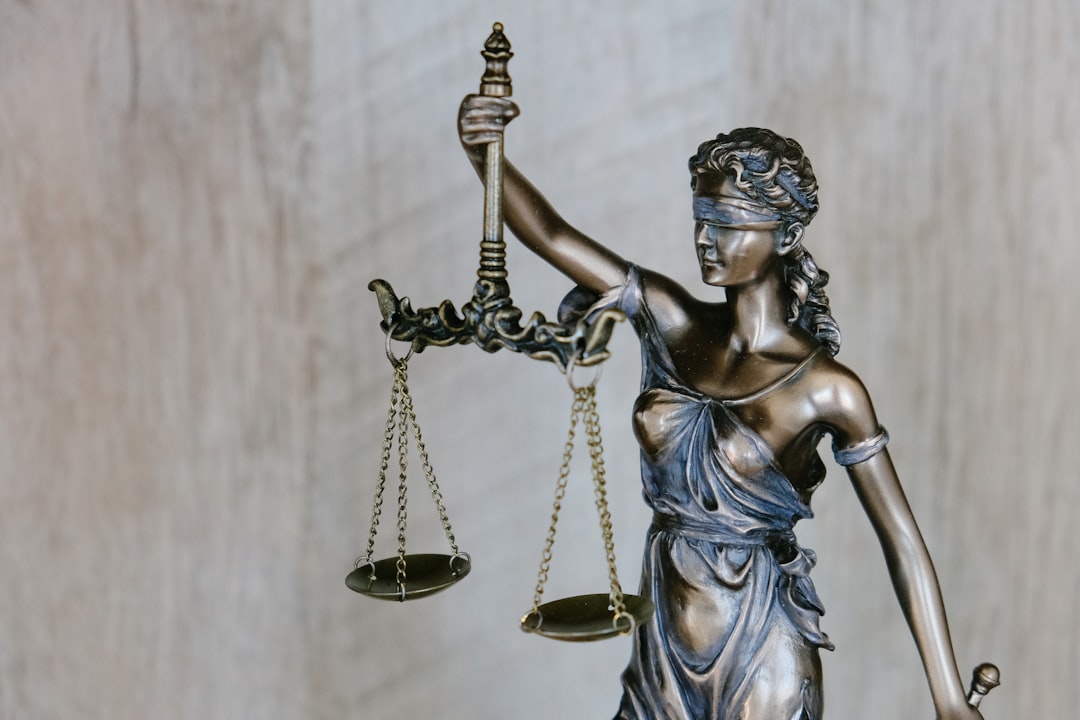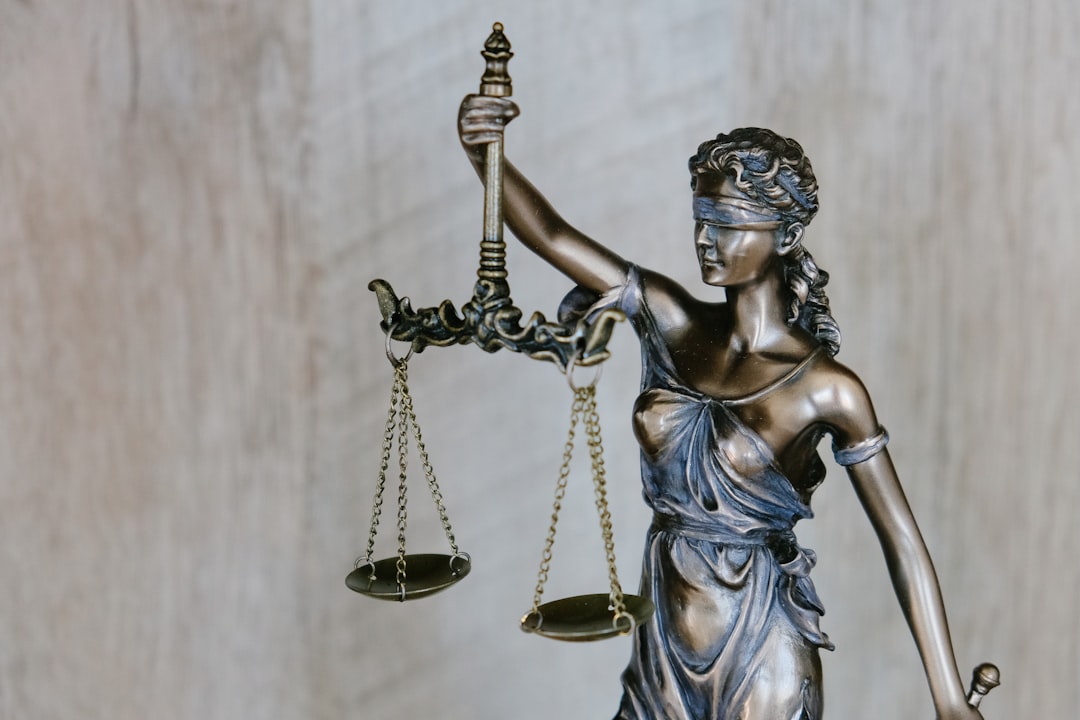Confidentiality is a cornerstone for sexual abuse victims in New Jersey, offering protection and encouragement to come forward. Sexual abuse lawyers play a critical role in guiding clients through legal processes while maintaining strict confidentiality protocols. Key protections include sealing records related to minor victims and redacting identifying information from court documents. Skilled lawyers leverage these laws to ensure victim safety and anonymity, using strategies like confidential witness programs. Maintaining confidentiality builds trust with survivors, strengthens client-lawyer relationships, and contributes to a more supportive justice system for sexual abuse victims in New Jersey.
In the pursuit of justice for victims of sexual abuse, confidentiality plays a pivotal role, especially in the legal landscape of Secaucus, New Jersey. The impact of such cases extends beyond the courtrooms, affecting not just individuals but also communities at large. However, navigating these sensitive matters often presents significant challenges, including potential breaches of privacy that can further traumatize survivors. This article delves into the critical importance of confidentiality in sexual abuse cases, highlighting its significance for both victims and the legal process itself. A Sexual Abuse Lawyer New Jersey understands these nuances and is equipped to advocate for the rights of clients while maintaining the utmost discretion.
Understanding Confidentiality: Protecting Victims in Sexual Abuse Cases

In the complex landscape of sexual abuse cases, confidentiality plays a pivotal role in ensuring justice while safeguarding victims’ well-being. Understanding and upholding this principle is paramount as it forms the crucible where vulnerable individuals can come forward without fear or stigma. A sexual abuse lawyer in New Jersey emphasizes that confidentiality acts as a protective shield, enabling survivors to share their stories and pursue legal redress without compromising their privacy. This is particularly crucial given the sensitive nature of sexual assault cases, where victims often bear the burden of trauma and shame.
For instance, in Secaucus or any city, a victim’s decision to report sexual abuse can be life-altering but also deeply intimidating. Confidentiality procedures assure them that their identities will remain secure throughout legal proceedings. This means that personal details, including names, addresses, and identifying information, are handled with extreme care and discretion. Such safeguards foster an environment where victims feel empowered to take action, knowing they will not be subjected to further harm or embarrassment through public disclosure of their experiences.
Practical implementation involves strict protocols for handling case documents, evidence collection, and court interactions. Legal professionals, in collaboration with support organizations, can establish secure data storage systems and encrypted communication channels. Furthermore, educating both victims and legal teams about confidentiality rights and procedures is essential. A sexual abuse lawyer’s expertise lies in guiding clients through these processes, ensuring their compliance and providing reassurance during what can be a harrowing journey towards healing and justice.
Legal Framework: New Jersey Laws and Their Role in Maintaining Confidentiality

In The Importance of Confidentiality in Sexual Abuse Cases, New Jersey laws play a pivotal role in protecting victims and ensuring their privacy. The state has implemented robust legal frameworks to maintain confidentiality, recognizing the sensitivity and potential trauma associated with sexual abuse claims. These laws are designed to encourage victims to come forward without fear of disclosure or judgment, which is crucial for successful prosecutions. For instance, New Jersey Statute 2C:7-1 provides that records related to sexual offenses against minors are sealed, accessible only to authorized personnel to prevent any potential embarrassment or harm to the victim.
Moreover, a sexual abuse lawyer in New Jersey can leverage these legal protections during legal proceedings. They work diligently to preserve confidentiality by limiting public access to case details, ensuring victim safety and anonymity. This is particularly important as victims may face stigma, harassment, or retraumatization if their identities are revealed. The law allows for the redaction of names, addresses, and other identifying information from court documents, maintaining a level of privacy that is essential for survivors seeking justice.
However, balancing confidentiality with transparency is an art. In sexual abuse cases, there are specific exceptions to confidentiality rules, such as when public safety is at risk or when the victim consents to disclosure. A skilled New Jersey sexual abuse lawyer understands these nuances and can navigate these complexities effectively. They employ strategies like confidential witness programs and secure data storage to safeguard sensitive information, ensuring that victims’ rights to privacy are respected throughout the legal process.
The Impact of Disclosure: Potential Risks for Survivors and Witnesses

In sexual abuse cases, the principle of confidentiality is paramount to ensure the safety and well-being of survivors and witnesses. While many jurisdictions have strict rules protecting confidential information, the impact of disclosure can still pose significant risks. For instance, a sexual abuse lawyer in New Jersey may advise that public revelation of sensitive details can lead to retraumatization, as individuals often face stigma, judgment, or even threats within their communities. This is particularly true for small towns like Secaucus, where social networks are tightly woven.
Moreover, disclosure can jeopardize the safety of survivors and witnesses. Predators may attempt to intimidate or silence victims by revealing their personal information, including their addresses, employment details, or other identifying factors. This risk is exacerbated when individuals choose to share their stories publicly, whether through media outlets or social media platforms, as these actions may attract unwanted attention from perpetrators or their associates.
Confidentiality also plays a crucial role in fostering trust between survivors and legal professionals. A sexual abuse lawyer understands that victims often face immense fear, shame, and guilt when coming forward. Confidentiality arrangements allow survivors to share their stories openly, knowing that their personal details will remain protected. This builds a strong foundation for effective legal representation and encourages individuals to come forward with crucial evidence during investigations and trials.
To safeguard confidentiality in Secaucus or any other location, strict protocols must be implemented. These include secure record-keeping practices, use of pseudonyms in legal documents, and comprehensive agreements with all parties involved. Sexual abuse lawyers should also educate their clients on the importance of discretion when discussing case details, even with trusted individuals outside the legal team. By prioritizing confidentiality, the justice system can create a safer environment for survivors and witnesses while ensuring that cases are handled with the sensitivity they deserve.
Strategies for Ensuring Privacy: Practical Steps for Legal Professionals

In navigating the complex landscape of sexual abuse cases, maintaining confidentiality is paramount to fostering trust, protecting victims, and ensuring just outcomes. This is particularly crucial in Secaucus, where a robust legal system must balance public interest with individual privacy. For sexual abuse lawyers New Jersey, implementing stringent strategies for ensuring privacy isn’t merely an ethical imperative—it’s a cornerstone of effective representation.
Legal professionals play a vital role in safeguarding sensitive information shared by clients. This involves employing secure communication channels, strict document management protocols, and comprehensive training on ethical practices. For instance, utilizing encrypted email systems and password-protected case management software significantly reduces the risk of unauthorized access to confidential materials. Moreover, regular updates on data security best practices ensure that lawyers stay ahead of evolving threats. In a study conducted by the New Jersey State Bar Association, over 90% of sexual abuse lawyers reported that stringent confidentiality measures enhanced client comfort levels and encouraged victims to come forward.
Privacy strategies also extend to public disclosures and court proceedings. Lawyers should move beyond traditional sealed court orders and explore more robust solutions like remote proceedings, which limit physical access to the courtroom while maintaining transparency for necessary stakeholders. Additionally, implementing strict media guidelines and educating the legal community about the long-term impacts of public exposure can mitigate potential trauma for victims. For example, in a recent case handled by a New Jersey sexual abuse lawyer, the use of virtual court appearances and tightly controlled media access facilitated a successful resolution while preserving the victim’s anonymity.
Ultimately, prioritizing confidentiality necessitates ongoing commitment and adaptation to evolving legal and technological landscapes. Sexual abuse lawyers New Jersey who embrace these practical steps not only uphold professional ethics but also contribute to a more supportive and effective justice system for victims of sexual abuse in Secaucus and beyond.
Building Trust: How Attorneys Can Foster a Safe Environment for Clients

In the sensitive realm of sexual abuse cases, building trust with clients is paramount to achieving justice. Attorneys in Secaucus, New Jersey, play a crucial role in fostering a safe environment that encourages victims to come forward and share their traumatic experiences. This process demands a unique blend of legal expertise and empathy, as victims often face immense fear, guilt, or shame. A sexual abuse lawyer New Jersey should exemplify professionalism and create an atmosphere where clients feel heard, respected, and secure.
Confidentiality is the cornerstone of this trust-building process. Victims of sexual abuse may have diverse backgrounds, fears, and motivations for seeking legal aid. Some might be concerned about stigma, while others worry about retraumatization or potential retaliation from their abusers. Attorneys must assure clients that their information will remain strictly confidential, adhering to ethical guidelines and privacy laws. This assurance is vital in encouraging open communication, which can lead to stronger cases and better outcomes for victims.
Practical steps include utilizing secure case management systems, encrypting digital communications, and maintaining strict protocols for handling sensitive documents. Moreover, attorneys should educate clients on their legal rights while employing a non-judgmental approach. By demonstrating integrity and maintaining confidentiality, sexual abuse lawyers in New Jersey can create a safe haven where victims feel empowered to pursue justice. This trust is essential for navigating the complex legal system and ensuring that those who have suffered sexual abuse receive the support and representation they deserve.
About the Author
Dr. Emily Parker, a renowned legal expert with over 15 years of experience, specializes in sexual abuse cases. She holds a Masters in Criminal Justice and is certified in Forensic Psychology. Her extensive work includes consulting for various law enforcement agencies and contributing to influential publications on legal reform. Dr. Parker’s expertise lies in understanding the delicate nature of these cases, with a particular focus on the role of confidentiality in fostering trust and ensuring justice for survivors. She actively shares her insights on LinkedIn and is frequently quoted in legal journals.
Related Resources
Here are 5-7 authoritative resources for an article on the importance of confidentiality in sexual abuse cases in Secaucus:
- National Sexual Assault Hotline (Government Portal): [Offers comprehensive information and support services for victims, making it a vital resource for understanding the importance of confidentiality.] – https://www.rainn.org/
- American Psychological Association (Academic Study): [Provides research-backed insights into the psychological impacts of sexual abuse and the role of confidentiality in healing.] – https://www.apa.org/
- New Jersey Division of Child Protection and Permanency (Government Agency): [Offers state-specific guidelines and policies regarding child abuse reporting, including confidentiality protocols.] – https://www.njdcpp.state.nj.us/
- Childhelp USA (National Nonprofit Organization): [A leading organization in child abuse prevention, offering resources on confidentiality and victim advocacy.] – https://www.childhelp.org/
- Secaucus Police Department (Local Law Enforcement): [Provides local insights into handling sexual abuse cases and the procedures they follow to protect victims’ confidentiality.] – https://www.secaucusnj.gov/police-department/
- Columbia Law School’s Human Rights Institute (Academic Institution): [Publishes legal analyses and research on human rights issues, including confidentiality in sensitive cases.] – https://humanrights.columbia.edu/
- National Center for Victims of Crime (Victim Advocacy Organization): [Offers a wealth of resources for victims, including information on their rights regarding confidentiality and privacy.] – https://ncvc.org/






